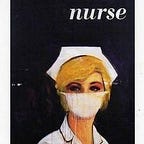English in the Hospital Waiting Room
Hospital appointments and procedures can be hard. Here’s some useful language for patients, receptionists, and other employees.
Level: Beginner, Intermediate
Duration: 15 mins
Theme: Medical English, Nursing English
Tasks: Describe a picture, dialogue, abbreviations (intermediate)
Teacher/Student Answers: Here.
Exercise 1
- Where is this? Which objects can you find in this waiting room? If you can’t find many, try to imagine some more.
- What do you do with these objects?
- You can make sentences like this — “A chair is made for sitting on…a newspaper is made for reading… a ___ is made for _______ .”
Exercise 2
Read the dialogue. Check any words/phrases you do not understand. Practice the dialogue alone, or with a friend or teacher.
Could you use these words/phrases below in the dialogue above? Check you understand them first.
Weight and height, scales, blood pressure, blood pressure machine (sphygmomanometer), nurse’s station, phlebotomist’s office, blood sample
Once you have replaced the words above, practice the dialogue again with the new words.
Exercise 3
Doctors, nurses and other medical staff often shorten words and use acronyms! It’s confusing (for example, “sphyg” for “sphygmomanometer”). In the sentences below, guess what the words in bold are:
- The phleb uses needles and bottles to take your blood.
- When you have a heart attack, it’s an emergency. You should go to A & E (UK English).
- The homeless man was not breathing. The hospital staff tried to save him with a defib.
- The drugs are OTC — you can buy them at a pharmacy and you don’t need a prescription.
